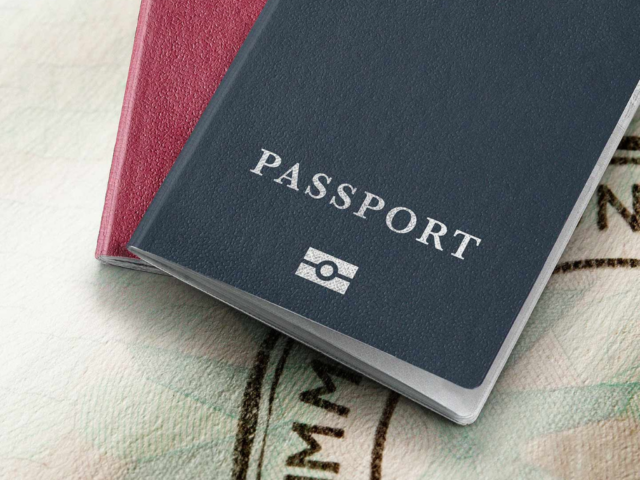Asia Pacific Region Looks Set to Emerge First from Pandemic
As 2021 commences, the latest results from the Henley Passport Index — the original ranking of all the world’s passports according to the number of destinations their holders can access without a prior visa — provide fascinating insights into the future of travel freedom in a world that has been transformed by the effects of the Covid-19 pandemic.
Without taking temporary restrictions into account, Japan continues to hold the number one position on the index, with passport holders able to access 191 destinations around the world visa-free. This marks the third consecutive year that Japan has held the top spot, either alone or jointly with Singapore. Asia Pacific (APAC) region countries’ dominance of the index — which is based on exclusive data from the International Air Transport Association (IATA) — now seems firmly established. Singapore sits in 2nd position, with access to 190 destinations, and South Korea holds onto 3rd place alongside Germany, with both having a visa-free/visa-on-arrival score of 189. Slightly further down but still in the top 10, New Zealand is in 7th position, with visa-free access to 185 destinations, while Australia is in 8th position, with access to 184 destinations.

The ascendance of APAC countries in the Henley Passport Index rankings is a relatively new phenomenon. Over the index’s 16-year history, the top spots were traditionally held by EU countries, the UK, or the US, and experts suggest that the APAC region’s position of strength will continue as it includes some of the first countries to begin the process of recovering from the pandemic.
With the US and the UK still facing significant challenges related to the virus, and the passport strength of both countries continuing to steadily erode, the balance of power is shifting. Over the past seven years, the US passport has fallen from the number one spot to 7th place, a position it currently shares with the UK. Due to pandemic-related travel constraints, travellers from both the UK and the US currently face major restrictions from over 105 countries, with US passport holders able to travel to fewer than 75 destinations, while UK passport holders currently have access to fewer than 70.

The great reset gives way to the next great migration
Experts suggest that in terms of future global mobility, we cannot expect a return to pre-pandemic patterns. Dr. Parag Khanna, bestselling author (The Future Is Asian) and the Founder and Managing Partner of FutureMap in Singapore says that the system will not simply revert to what it was, and that nationality alone will no longer suffice to guarantee safe passage. “Even for still-powerful passports such as Japan, Singapore, South Korea, and members of the EU, additional protocols will be required to re-attain relatively frictionless mobility.” Looking further ahead, Khanna suggests that demographic shifts are likely to usher in far more dramatic changes: “Today’s youth are socially conscious, environmentally aware, and less nationalistic — all of which makes them potentially the most mobile generation in human history. They herald a seminal shift in mobility from being every country for itself to being every person for themself.”
More key developments like this one are discussed in the Global Mobility Report 2021 Q1 released by Henley & Partners today. The report, which features cutting-edge analysis and commentary from leading academics and professional experts, shows that while the pandemic may have temporarily restricted transnational movement, the urge to move and migrate remains, with people turning to creative solutions to protect their global privileges in the post-Covid era.
Commenting on the growing trend towards the acquisition of second citizenships, Professor Peter J. Spiro, Charles Weiner Professor of Law at Temple University Law School, says that the pandemic “proved the first major blow to the post-globalization system of mobility”, and that this will “ultimately accelerate pre-existing trends towards citizenship acquisition as transnational elites look to insure against future shock events”.
The Global Mobility Report 2021 Q1 also highlights new research by Deep Knowledge Group, overlaying data from the Covid-19 Risk and Safety Assessment of the economic, social, and health stability of 250 countries and regions with the latest Henley Passport Index results. What emerges is that for developed and developing nations alike, travel freedom is currently not only the result of a lack of social freedom or poor economic development but also a failure of risk management, health readiness, and monitoring and detection. In other words, global immobility is no longer solely the plight of citizens of less advanced countries.
Discussing the pandemic’s impact on talent migration, Greg Lindsay, Director of Applied Research at NewCities, points to the rise of the so-called ‘digital nomads’. “The moniker now effectively describes anyone with a Covid-induced mandate to work from anywhere — and thousands, if not millions, are pursuing pandemic arbitrage in their choice of destinations. The evidence is clear, including record numbers of Americans seeking secondary citizenship in 2020, and Britons rushing to secure EU access ahead of Brexit.”
New alliances and the changing Middle East
Perhaps understandably, there were relatively few high-profile visa agreements between countries during 2020. The notable exception was the UAE, which has continued its remarkable upward trajectory on the Henley Passport Index. The country signed several mutually reciprocated visa-waiver agreements last year, including a landmark US-brokered agreement establishing formal ties with Israel and granting citizens of each country visa-free access to the other. The UAE now has a visa-free/visa-on-arrival score of 173 and holds 16th spot on the ranking. This is a stunning ascent when compared to the position it held at the index’s inception in 2006, when the country ranked 62nd, with a visa-free/visa-on-arrival score of just 35.
Commenting in the Global Mobility Report 2021 Q1 on these developments, Dr. Robert Mogielnicki, Resident Scholar at the Arab Gulf States Institute in Washington, says they could pave the way for further significant changes in the region: “A strong technology focus weaves together the economic agreements and memorandums of understanding that emerged in the wake of the UAE–Israel normalization agreement. Sudan normalized relations with Israel in October 2020, and other Arab countries may take similar steps over the coming months.”

Investment migration: An essential insurance policy
Amid these dynamic shifts, the appeal of investment migration remains constant, with countries offering residence and citizenship programs continuing to fare extremely well on the index. Henley & Partners’ CEO Dr. Juerg Steffen says that the volatility driven by Covid-19 has pushed the steadily growing appeal of investment migration into overdrive. “More than being associated with the simple ease of travel or acquiring a vacation home, alternative residence and citizenship are now also perceived in terms of their remarkable potential for portfolio diversification, access to global investment and operations, and the creation of a new inheritance and identity for the family. The unexpected and unprecedented events of 2020 have simultaneously exacerbated push factors such as political and economic instability and reprioritized pull factors, with stability, safety, and access to quality education and healthcare becoming issues of greater concern than ever before. Investment migration is now a standard consideration for international families and entrepreneurs who are looking to hedge volatility and create long-term value through enhanced global mobility.”
Read the full Global Mobility Report 2021 Q1 here.














